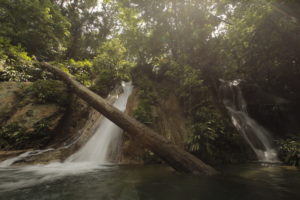“At Human Connections we are always looking for ways to make our programs more sustainable. Ecosphere+ provides a fantastic way to do this, with great support and customer service along the way.” – Human Connections
Based in Mexico, Human Connections is a tourism company that does things a bit differently. The organisation spreads social awareness through educational tours, global engagement trips and internships, bringing international travellers and local entrepreneurs together to share their cultures and ways of thinking, fostering cross-cultural relationships that are mutually beneficial and have lasting social impact.
Human Connections recognises that the tourism industry can bring huge benefits to host communities. They also acknowledge that the tourism industry is responsible for about 5% of global CO2 emissions with climate change disproportionately affecting developing countries and the worlds’ most vulnerable populations.
Because of this, they have partnered with Ecosphere+ to rebalance the carbon footprint of some of their programmes from start to finish. This included flights, accommodation, food and daily activities throughout the trip. The affordable cost of offsetting the impact on the climate of their student programmes is built into the programme budget, so that those attending can be assured that their trip is carbon neutral. Human Connections is committed to go even further in the future, working to become a fully carbon neutral business.
Human Connections is helping Ecosphere+ finance forest conservation and sustainable land use efforts in Guatemala because they recognise there is an important connection between healthy ecosystems and resilient local livelihoods, as is directly evident in rural areas in Mexico. Human Connections is, in essence, making it financially possible for its student participants to protect forests and use lands in a way that works to reduce future emissions and fight climate change.
By purchasing carbon credits from the Guatemalan Caribbean Coast Project, Human Connections is financing the implementation of agroforestry systems and community driven conservation efforts in the area, as well as activities to empower indigenous women through education, access to services and women’s rights.
“One of the most integral parts of responsible tourism is decreasing the use of CO2emissions or using less transportation. While Human Connections definitely limits the use of vehicles, it also helps the environment by rebalancing those emissions through Ecosphere+ for whenever we do use transport, and that makes me proud to be a part of Human Connections.” – Taimur I., Human Connections Intern
“Being a part of the Human Connections summer internship program has been great for so many reasons, however it is amazing to know that along with everything else it is also an eco-friendly program. It is not common to be a part of an organization that will neutralize the carbon emissions from the transportation with a portion of the program fee each intern pays. Human Connections also suggests that interns use reusable containers and cups for the different food and drink we order almost daily to take back to the office. We have begun going to the local coffee shop with our own cups, bowls, plates, etc. We are taking initiative to reduce our use of plastic and Styrofoam which holds a lot of value for each of us, and the organization. I can really see in a variety of ways the different extents to which Human Connections cares, and how much the organization truly values responsible tourism.”- Human Connections intern
The Project
Our Conservation Coast project on the Guatemalan Caribbeancoastline protects beautiful forests which are a critical migratory corridor for biodiversity, including hundreds of bird species, connecting North and South America. This is the world’s largest grouped forest carbon project; hundreds of diverse landowners (including the government, NGO, private and community) have joined together to protect 675 parcels of forest making up a total of 54,000 hectares to date. A truly landscape-scale and community-based project. Activities on the ground include local farmers technical assistance, and route to market for a variety of sustainably produced commodities such as spices and jungle leaves, as well as developing this beautiful coastline into a thriving eco-tourism hub. This project is implemented on the ground by the Guatemalan NGO, Fundaeco.


